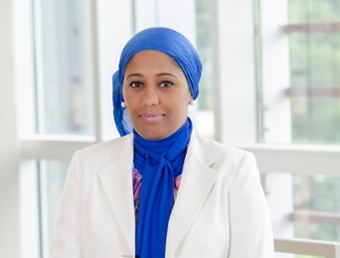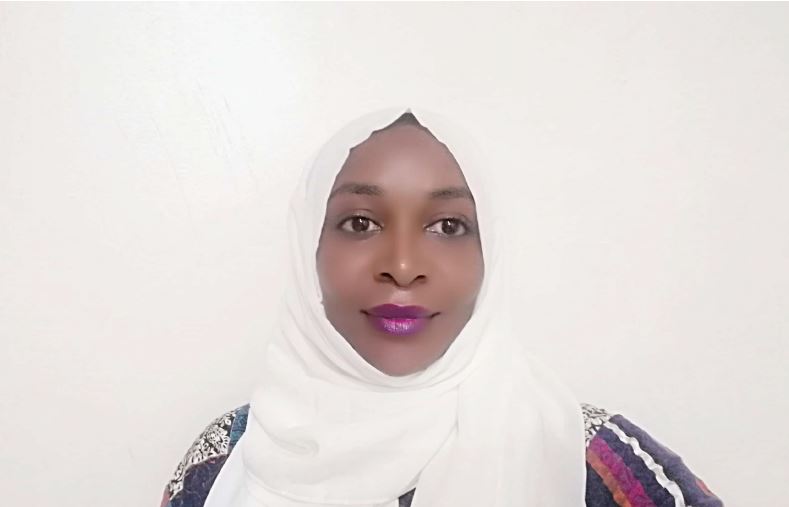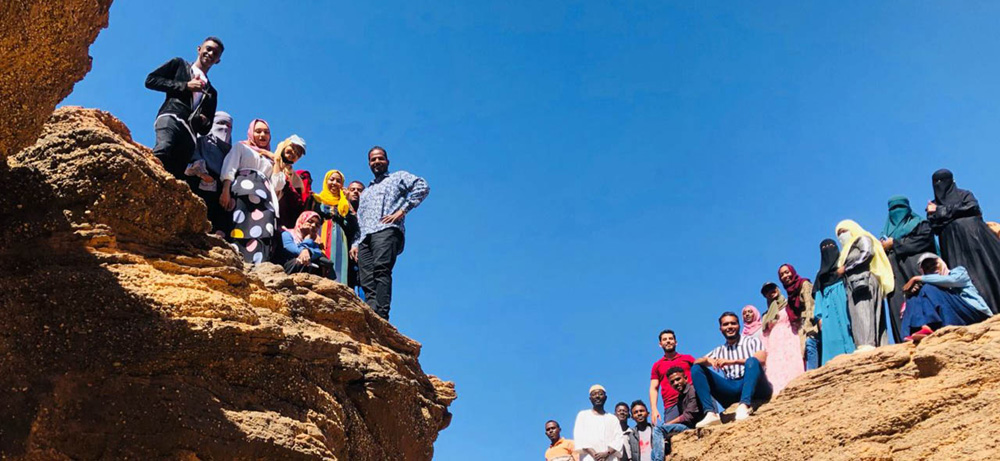Project ECHO Helps Medical Students Bring COVID-19 Vaccine to Sudan’s People
One morning, Sudanese medical student Sara Hassan saw an opportunity: She approached a woman waiting in a Khartoum breadline hoping to convince her to get the COVID-19 vaccine.
“When I asked her if she was willing to be vaccinated, she got angry,” recalls Hassan. “She couldn’t even think about getting vaccinated [because] it would cost hundreds of Sudanese pounds to take a taxi to and from a vaccine site.
“That’s when I realized we needed to figure out how to bring the vaccines to the people if we were going to be successful.”
Hassan had learned how to administer the vaccines and how to communicate with people who are vaccine-hesitant as a participant in Project ECHO, a global tele-mentoring model that empowers local community providers to learn best practices and provide specialized care in rural and underserved areas.
In May 2020, a group of medical student volunteers banded together to form the Community Medical Response Team COVID-19 ECHO (CMRT), with a mission to slow the spread of the disease across Sudan.

“Learning how to address vaccine hesitancy was critical,” says Dr. Nada Fadul, a Sudanese-American infectious disease physician at the University of Nebraska who helped launch and run the CRMT program. “People in Sudan were hearing rumors and disinformation about COVID vaccines – that it caused DNA damage and infertility. The students learned to use simple and straightforward language to address concerns and to earn the trust of people in the community.”
When Hassan shared her breadline encounter during the weekly ECHO session, Fadul suggested the model of community vaccine clinics she used to reach under-resourced Black communities in Omaha, Neb. These pop-up clinics provided vaccines where people live, shop and work to eliminate the burden of travel.
The CMRT volunteers decided to partner with a local soccer club and held a clinic at its facility to resounding success: Nearly 2,000 people were vaccinated, eclipsing the original expectation of only 500.
Inspired, the team began holding clinics all over the country, in cities, rural communities and even for nomadic tribes. Today, they have vaccinated more than 20,000 people.
“The volunteers have met the people where they live – going to protests, the marketplace, homes and rural villages to vaccinate people and to educate them about how to limit their risk,” Fadul said.
Now, the CRMT team is adapting their program to provide information on other high-need, primary care topics, including diabetes, nutrition and schistosomiasis – a common disease in Sudan caused by parasitic worms.

“Using ECHO allows us to access knowledge that we otherwise couldn’t get,” says Hassan. “I want to continue to learn so that I can reach the people who need care the most. Through ECHO, I can learn how to best treat the communicable diseases that are affecting people across Sudan.”
The Community Medical Response Team COVID-19 ECHO is supported by: Project ECHO, the University of Nebraska Medical Center and the Sudanese Federal Ministry of Health, as well as the Sudanese American Medical Association and Sudan NextGen – both members of the Coalition of Sudanese Organizations against COVID-19.
Since 2003, Project ECHO’s tele-mentoring model has been used to tackle the world’s greatest challenges in health care, education and more. Headquartered at The University of New Mexico Health Sciences Center in Albuquerque, Project ECHO is empowering local communities to improve the well-being of people around the world. Join us today, in our mission to touch 1 billion lives by 2025.


